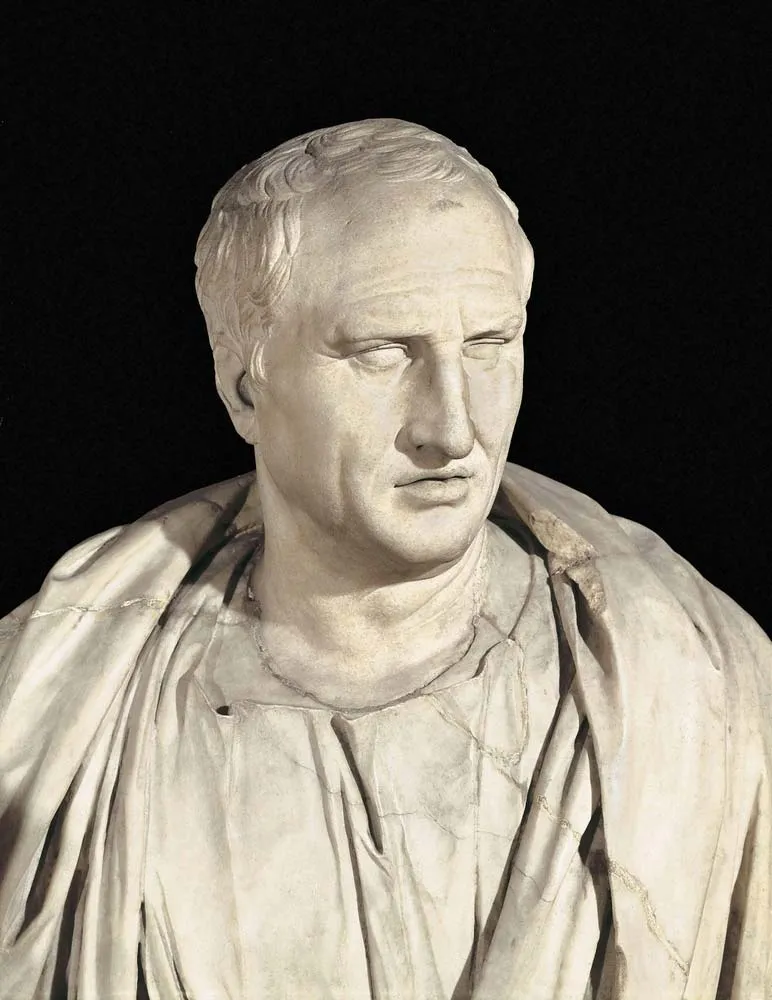The following is an essay/meditation from my sister project, Pneuma. If you’d like to listen to this meditation as a podcast, please visit my website, pneumameditations.com, or download Pneuma By Daniel Finneran on any of your favorite podcast platforms.
Greetings my friends, and welcome to this episode of Pneuma. I’m your host, Daniel Finneran, and I’m so pleased that you’ve decided to join me today.
A quick update, I think, is in order.
Thanks to your ongoing patronage and support, for which, I should say at the top, I’m very grateful, this channel has amassed, during the short tenure of its existence, close to 14,000 downloads. I have you to thank for what may be, to some, a meager, insignificant figure, but is, for me, a number of which I had no expectation when I began this little project less than a year ago. So, again, thank you.
Also, I’ve begun filming and posting these podcasts as videos on YouTube. My channel name on that medium is the same as this, Pneuma by Daniel Finneran. You can search for it and watch, instead of listen to me speak, if you’re so inclined. The production quality, I confess, is less than superlative. It leans toward outright crudeness, but you might be willing to suffer the imperfect camera angle and unprofessional lighting if you can finally put a boyish face (and a barren torso!) to the voice that so gently tickles your ears.
Today, I want to talk about wisdom. Could there be a finer, more edifying topic with which to spend some time?
Before we do so, I want you to take a moment, collect yourself, and gather your breath. Invite a few deep, mindful breaths to interrupt whatever it is you’re doing. To think that breathing could ever be an interruption! With so many claims on our time and demands on our attention, it often becomes precisely that.
Let us restore breathing to its primacy of place, to the core of a being from which it too quickly slides away.
Breathe in for a count of four seconds; hold for four seconds; and breathe out for a count of six. We’ll repeat this three times:
You might recall from a prior episode our enumeration of the four cardinal virtues: Wisdom, temperance, justice, and courage. It’s a theme to which, you’ll note, I often return.
They are declared the cardinal virtues not because they were issued by some high ecclesiastical office, nor for their crimson color, nor for their association with the Saint Louis baseball team, but for the fact that they are the virtues on which a well-ordered and good life hinges. Cardinas, in Latin, means “hinge”, such as that little piece of metal around which your door swivels with frictionless ease, thus making these the virtues on which, by extension, a proper, moral, fulfilled life equally smoothly pivots.
From Aristotle to St. Thomas Aquinas, most philosophers are in agreement that wisdom, an intellectual virtue, is the great jewel by which all the other moral virtues are crowned. Temperance, justice, and fortitude, or courage, are classified as moral virtues. Wisdom, to some extent, is moral as well, but it enjoys the distinction of being, to the exclusion of all others, far and away the most intellectual of the heralded bunch.
And yet, to borrow a learned term from Aquinas, wisdom is not univocal. It doesn’t have one meaning, and one meaning alone. As it pertains to the four cardinal virtues, wisdom means “prudence”. This word arrives to us from the Latin, prudentia, to which the earlier Greek word, phronesis gave birth. Simply put, phronesis is “practical wisdom”. It is sureness of mind and soundness of judgment, keenness of thought and perspicacity of insight–traits, no doubt, of which you’d like to see every free citizen in a democratic republic amply possessed, powers upon which, no matter the hour nor the situation at hand, he or she can readily call.
Phronesis is the wisdom that allows a man or woman to exercise right reason, to deliberate over alternatives, to choose that which is best, and to enact his or her choice. Prudence captures much the same idea.
I think, for now, we’ve said enough about phronesis and prudence. There is, in Greek, a second, more exalted definition of wisdom: sophia. This type of wisdom is not included among the four cardinal virtues. Indeed, it might be placed above them.
Think of the term philosophy, or the erstwhile cathedral (now mosque) erected by the Byzantine emperor, Justinian I in his eastern home of Constantinople, Hagia Sophia. Philosophy means, clearly enough, “love of wisdom”, while Hagia Sophia means “Holy Wisdom”.
You immediately get the sense, then, that this form of wisdom is quite different from that for which practicality, prudence, or phronesis is called. Sophia deals with something higher, something more abstract, distant, and detached from the ordinary world in which we toil, play, vote, and live. Sophia is wisdom on a different scale, located on a perch toward the summit of the mountain of truth up which every human mind is tirelessly climbing. It is a wisdom proximate to the underbellies of the clouds, just above whose gossamer wisps of moistened fluff, heaven spreads her joyous welcome, and the divine takes his eternal repose.
That is wisdom. That is sophia–a woman of whom an entire species, since the first kindling of its rational spark, has been completely enamored.
Wisdom, says Cicero, “is the mother of all good things”.
For those of us unacquainted with this remarkable figure of ancient Rome, I provide a brief introduction. Born into the equestrian class (out of which middling, though seldom leading men emerged), Cicero rose to prominence on the merit of his native genius, and by the steady employment of his unmatched political skill. Among the many accomplished orators who graced that eloquent land, Cicero was the most celebrated. He was said to have inherited the gift of good speaking from Demosthenes, the finest orator of ancient Greece. Before being elevated to the consulship, he was the empire’s leading attorney and most formidable statesman. He was also its greatest writer, and scholars still delight in pouring over his countless letters and treatises.
In his Laws, he states that “Wisdom is the mother of all good things”.
“The love of her”, he continues, “gives us the word philosophy from the Greek. Of all the gifts which the immortal gods have bestowed on human life, none is richer or more abundant or more desirable (than wisdom, sophia)”.
Wisdom, sophia, is the highest gift that we possess. It is not a gift sparingly bestowed, a gift showered upon a favored group of the elite and the elect. In its abundance, it’s capable of being possessed and enjoyed by all–no matter where in your high school you were ranked, nor the university from which you took your degree.
Cicero goes on: “She alone taught us this most difficult lesson, namely, to know ourselves–a precept of such power and significance that it was ascribed, not to any mortal, but to the god of Delphi”.
Inscribed in the forecourt of the Apollonian Temple at Delphi, through which, like cautious pilgrims, seekers of foggy advice, divine inspiration, and hidden truths would hesitatingly shuffle, were the words, know thyself.
Know thyself. It’s one of the most intriguing and enduring aphorisms from ancient Greece. It’s an everlasting injunction to which, no matter the age in which we live, we must answer. Alexander Pope, England’s physically diminutive yet poetically towering genius of the late seventeenth century, provided a response in his famous Essay on Man: “Know then thyself, presume not God to scan; the proper study of mankind is man”.
And, yet, Cicero, having completed his prescribed study, would find god in man. Quite a discovery!
According to Cicero, “The person who knows himself will first of all realize that he possesses something divine, and he will compare his own inner nature to a kind of holy image placed within a temple. His thoughts and actions will always be worthy of that priceless gift of the gods”.
He goes on:
“And when he inspects and tests himself thoroughly he will see how well he has been equipped by nature on entering life, and what implements he has for acquiring and obtaining wisdom. At the beginning he will have conceived in his mind and spirit dim perceptions, so to speak, of everything. When these have been illuminated with the guidance of wisdom (sophia), he now realizes that he has the makings of a good man, and for that very reason a happy one”.
I’m reminded of the latest excerpt I read for my “Fall Asleep with Me” series (to which I encourage you to listen!). I read the first few chapters of Genesis, the arresting, awesome, glorious opening of the Hebrew Bible. It’s one of the finest pieces of literature ever written.
Of God’s creation of man, in Chapter 2, the following is said: “And the Lord God formed man of the dust of the ground, and breathed into his nostrils the breath of life; and man became a living soul”.
Mind you, this is the second instance, the second act, if you will, of man’s creation–a subtlety in the narrative that’s often overlooked. The first creation, performed not by Elohim (Lord God) but by Yahweh (God), brought simultaneously into being both male and female (“So God created man in his own image, in the image of God created he him; male and female created he them”). The second creation is a bit more sex-selective. Man, from whose sleeping midsection woman would eventually be drawn, is here built first, and from the ground up. The divine insufflation, the magical transference of pneuma, or the holy breath, then brings him up and into something more than a merely material thing. As Aquinas noted, it implanted in his soul something divine, and gave him real life.
The person who knows himself (or herself) knows this to be true. We know that we possess in us something ineffable; something peculiar; something divine. Enkindled in us, deep down in us, is an inextinguishable spark. There is, at the core of our being, in the blazing furnace of our soul, an immortal light. We cannot see it, but we can feel its undiminished warmth. To our detection, its radiance remains forever hidden, but we know it to flicker always. Regardless of our place in this world, its undimmed glow shines forth. It is a light that a primordial match set aflame, sustained by the sweet, potent, invigorating breath of heaven. That, the divine breath, is its oxygen, the spirit by which it’s sustained.
It is wisdom, the esteemed lady sophia, who declares to us this ennobling truth. Listen closely. We, her faithful adorers, can’t but heed her call.
Thank you so much for accompanying me on this journey. It’s not my habit to be quite so spiritual, but the idea moved me and I wanted to share it with you.
If you, like me, were caught up in the movement, and enjoyed this episode, please consider subscribing to and following this channel. Leave a “like”, a thumbs-up, a comment, or a five-star rating on it, and, more importantly, share it with some friends.
Tune in to my forthcoming “Fall Asleep with me” episode”, and check out my sister podcast and YouTube channel, “Finneran’s Wake”. With that, I bid you farewell, from Pneuma, by Daniel Finneran

